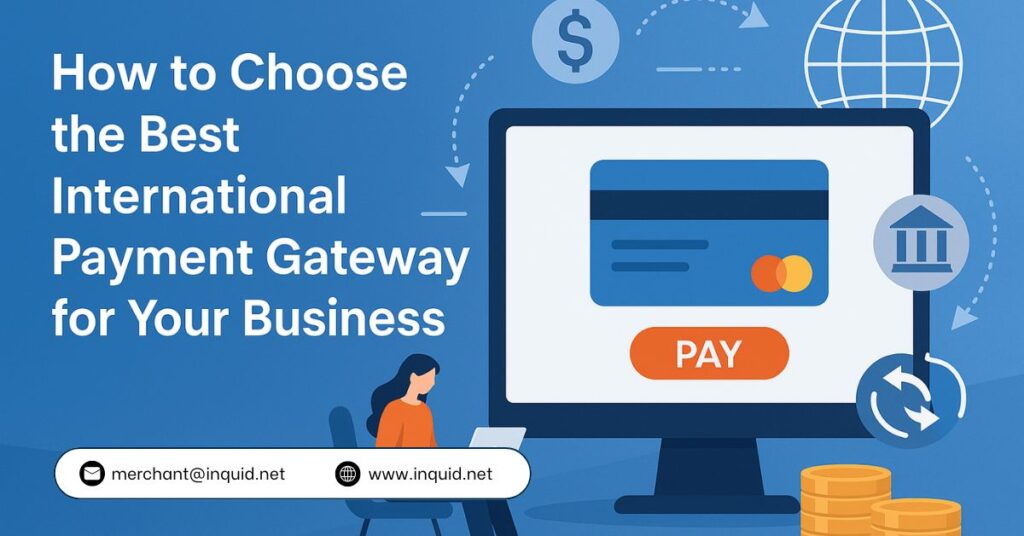
Accepting payments across borders isn’t just a technical decision—it’s a strategic one. Whether you’re expanding into new markets or handling overseas clients, the payment gateway you choose plays a direct role in how your business collects revenue, manages risk, and builds trust with international customers.
But with so many providers available, how do you pick the right one?
Know Your Business Needs First
Before jumping into features and comparisons, take a close look at your actual requirements. Start with questions like:
- Where are most of your customers located?
- What currencies do you need to accept?
- Do you handle physical goods, digital services, or subscriptions?
- Are you operating in a regulated or high-risk industry?
Not all payment gateways handle all business models equally. For example, a gateway that works well for eCommerce in Europe might not be ideal for forex trading or adult services in the UK. If you’re unsure where you stand, reviewing this international payment gateway guide can help clarify your position.
Look for Global Coverage with Local Strength
If your business operates internationally, your gateway should too. That means multi-currency support, local acquiring banks, and reliable service across different regions. Some gateways may advertise global access, but still face issues with settlements or compliance in certain countries.
For high-risk industries—like gaming, CBD, or adult—this becomes even more important. You need a partner that not only works globally but also understands the unique challenges of your sector. This article on international payment gateways for high-risk UK businesses outlines key considerations for merchants facing stricter scrutiny or chargeback risks.
Evaluate Payment Options and Methods
A strong international gateway will support:
- Credit and debit card payments
- Alternative payment methods (like PayPal, Skrill, or local wallets)
- Bank transfers
- Subscription billing (if applicable)
Customers are more likely to complete a purchase when they see payment methods they trust. What works in the US may not be the preferred option in Asia or Europe. The more flexibility your provider offers, the better you can serve different buyer behaviors without switching platforms later.
Security Should Be Non-Negotiable
When it comes to payments, trust is everything. Your provider should be PCI DSS compliant and offer tools like tokenization, real-time fraud checks, and 3D Secure. This is especially true if you’re operating in industries that frequently face chargebacks or fraud.
But don’t just settle for flashy words or vague promises—ask for specifics. What kind of fraud detection is offered? How are disputes managed? How fast are settlements processed? If you’re still evaluating, here’s a reliable overview of inquid’s payment gateway services that includes these kinds of details.
Check the Integration Process
A great gateway should fit into your existing tech stack without added complexity. Whether you’re using Shopify, WooCommerce, or a custom setup, integration should be straightforward. Most top-tier providers offer API documentation, plugins, and onboarding support. Still, don’t overlook customer support—it matters more than people think.
If something breaks or a transaction gets flagged, fast resolution keeps things moving. Delays, on the other hand, cost sales. That’s why it’s smart to go with providers that offer dedicated merchant support, not just chatbots or ticket systems.
Transparency in Fees and Settlements
International gateways often come with extra layers of fees—conversion charges, cross-border fees, and processing rates that vary by country or card type. Make sure the provider gives you a clear breakdown before you commit.
Also, ask about settlement times. Some providers hold funds for days or even weeks, depending on your industry. Fast, predictable payouts help manage cash flow—something startups and high-volume merchants can’t afford to overlook.
Final Thoughts
Choosing the right international payment gateway isn’t just about going with the biggest name or the lowest rate. It’s about compatibility—with your business model, your risk profile, and your customer base. You need a partner who can support you at scale and adapt as your needs evolve.
If you’re looking for a provider that supports global merchants, handles high-risk categories, and offers flexible processing solutions, inquid may be worth exploring. And if you’re still unsure, this detailed guide can help you weigh the options based on real-world priorities.
